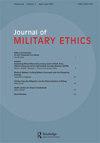“Worth More Than Life Itself”: Military Honour and the Birth of Its Courts in Spain (1810–1870)
Q2 Arts and Humanities
引用次数: 0
Abstract
ABSTRACT This article deals with military honour in nineteenth-century Spain, after first examining how the meaning of this term evolved from the revolutionary Napoleonic wars onwards. This highly important moral value was learnt from the moment someone joined the army, and even before then, through education and common public military demonstrations. It related to individual behaviour, while also maintaining a high collective and corporative aspect, and it varied depending on gender or class and on the identity of the social group. It was part of the political thought of most relevant Spanish generals, and consequently it influenced the political dynamics of Spain. The Court of Honour, an institution in Spain that was not regulated until 1811, controlled honour compliance. The last section of this article focuses on how and why these institutions were born and explains their early legislative evolution. Spanish political and military development are inevitably bound together to the extent that an understanding of the nature of honour and its effects on the army and civilian ethics provides us with a deep socio-political and ethical analysis of the country during the nineteenth century.“比生命本身更有价值”:军事荣誉及其法院在西班牙的诞生(1810–1870)
本文首先考察了这一术语的含义是如何从拿破仑革命战争开始演变的,然后讨论了19世纪西班牙的军事荣誉。这一极其重要的道德价值,从人们参军的那一刻起,甚至在参军之前,就通过教育和普通的公开军事示威来学习。它与个人行为有关,同时也保持高度的集体和合作方面,它因性别或阶级以及社会群体的身份而异。这是大多数西班牙将军政治思想的一部分,因此它影响了西班牙的政治动态。西班牙的荣誉法庭(Court of honor)直到1811年才受到监管,负责控制荣誉合规。本文的最后一部分着重于这些机构的诞生方式和原因,并解释了它们早期的立法演变。西班牙的政治和军事发展不可避免地联系在一起,在某种程度上,对荣誉的本质及其对军队和平民道德的影响的理解为我们提供了对十九世纪国家的深刻的社会政治和道德分析。
本文章由计算机程序翻译,如有差异,请以英文原文为准。
求助全文
约1分钟内获得全文
求助全文

 求助内容:
求助内容: 应助结果提醒方式:
应助结果提醒方式:


